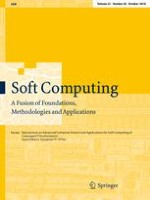16.12.2017 | Foundations
Distance-dependent parameter adaption for multi-objective evolutionary algorithm based on decomposition
Erschienen in: Soft Computing | Ausgabe 20/2018
EinloggenAktivieren Sie unsere intelligente Suche, um passende Fachinhalte oder Patente zu finden.
Wählen Sie Textabschnitte aus um mit Künstlicher Intelligenz passenden Patente zu finden. powered by
Markieren Sie Textabschnitte, um KI-gestützt weitere passende Inhalte zu finden. powered by
